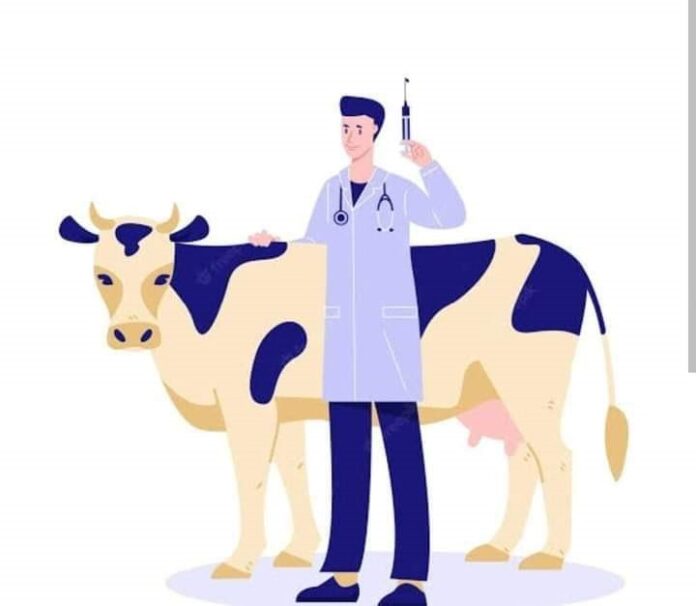Bovine Cryptosporidiosis
Cryptosporidium is an obligate protozoan parasite that commonly infects calves and other mammalian hosts. Cryptosporidiosis posses a significant problem in dairy calves where the prevalence of infection is high, with losses due to increased treatment costs and occasionally causes mortality. Cattle and buffaloes are the most important animal groups which are predominantly recognized to be infected with Cryptosporidium . Calf diarrhoea associated with Cryptosporidium was for the first time reported by Nooruddin and Sarma (1987) in India and the first confirmed case of C. parvum was reported in Uttar Pradesh . Cryptosporidiosis is characterized by acute gastrointestinal disturbances, mucoid or haemorrhagic watery diarrhoea, fever, lethargy, anorexia and loss of condition , leading to significant losses in farm animals . Affected calves do not respond to antibiotic therapy and in more severe cases, dehydration and cardiovascular collapse occurs leading to mortality . Cryptosporidium is progressively inviting attention as a zoonotic protozoan, largely due to its overriding involvement in worldwide waterborne outbreaks . There is limited data on national prevalence of zoonotic Cryptosporidium spp. in dairy calves in India. In the context of the clinical importance, avoiding losses in the production and zoonotic potential of Cryptosporidium, more information about its prevalence is required. Therefore, there is an urgent need to conduct research on this aspect. In India, several studies have documented the prevalence of Cryptosporidium from different parts of the country based on microscopic detection of oocysts in faecal specimens.
Cryptosporidium infection is a major problem in neonatal ruminants. Cryptosporidium is a zoonotic small protozoan parasite (4-6µm) that inhabit microvillus border of epithelium mucosal in many vertebrates including livestock. Cryptosporidium spp. is known as one of the most common water and foodborne diseases. It is a common cause diarrhea in human and animals. Cryptosporidium infection is a major problem in livestock as the infection causes neonatal diarrhea syndrome. Cryptosporidium infections in small ruminants may be a source for cryptosporidiosis in human. Since there is a lack of effective drug available to treat cryptosporidiosis, application of proper effective management is a must to prevent the spread of cryptosporidiosis among the livestock.
Bovine Cryptosporidiosis




